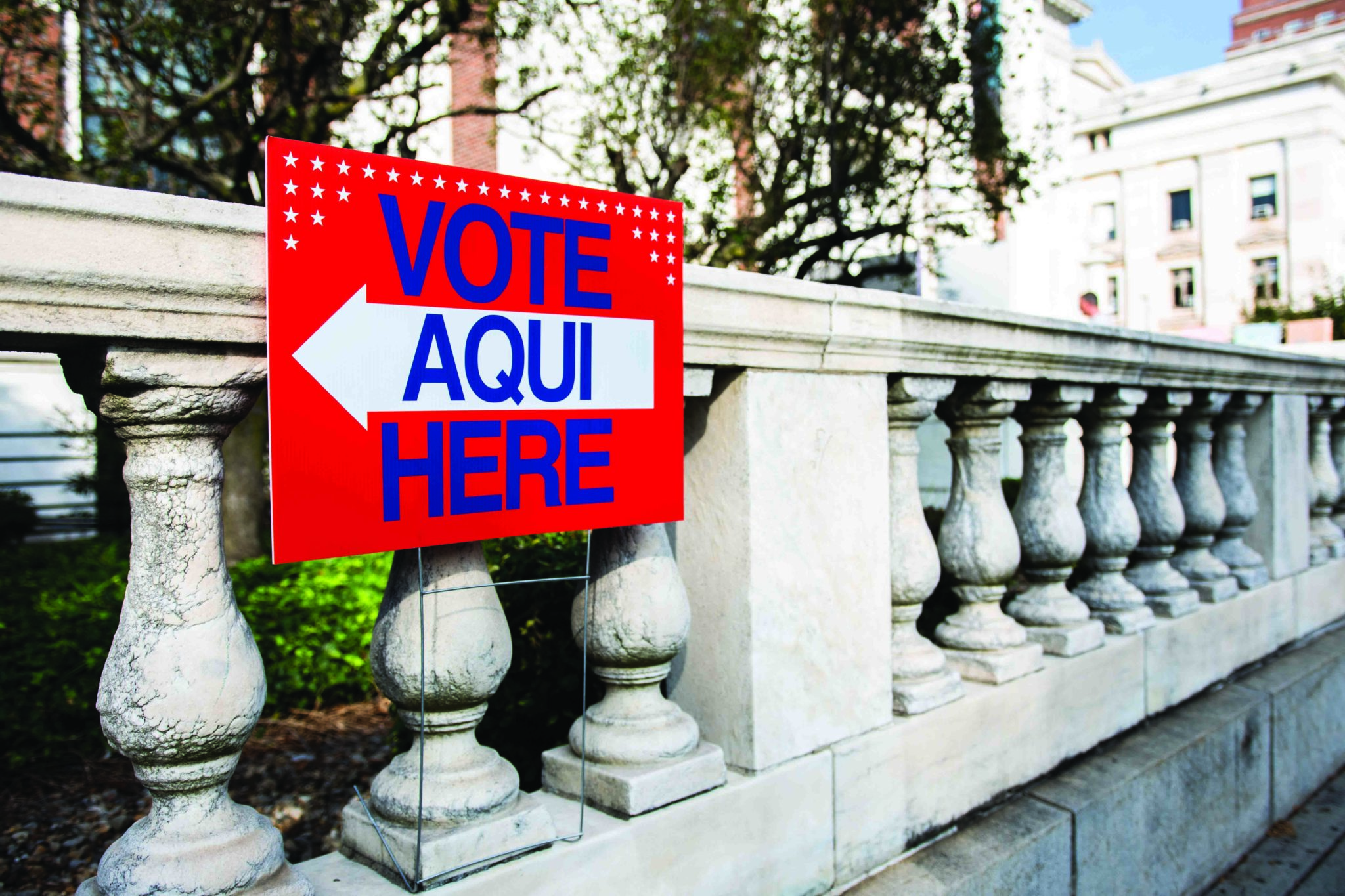Yale students participate in the U.S. 2020 elections as voters, organizers
Yalies took political action and reacted to electoral outcomes surrounding Election Day.

Lukas Flippo, senior photographer
Amid a year marked by the onset of the COVID-19 pandemic and a nationwide movement for racial justice, many Yalies engaged in the 2020 U.S. elections as voters, organizers and observers.
Leading up to Election Day, some students participated in political and civic outreach campaigns, with on-campus voter engagement programs gaining traction. Yale Votes — a nonpartisan coalition of members of the Yale College Council, Yale College Democrats and Every Vote Counts, or EVC — was founded in 2018 to boost Yalies’ engagement in upcoming elections. The year’s civic engagement initiatives sought to ride on an upward trend in voter turnout among the student body — in 2016, 56.7% of students voted in elections, a significant increase from the 32.7% turnout in 2012.
Seeking to earn Yale a designation as a “Voter Friendly Campus” under the National Association of Student Personnel Administrators and Fair Election Center’s Campus Vote Project, Yale Votes launched an initiative in February 2020 to get campus organizations to host voter engagement stations, register members to vote, publicize election information and recruit volunteers. Nearing the election, Yale’s chapter of EVC often set up tables on Cross Campus to distribute voting information.
“We’ve been on Cross Campus every day from the end of September through October conducting outreach in a COVID-safe way, with volunteers there to provide information and support; we have answered questions, printed registration forms and absentee ballot applications and distributed stamps and envelopes,” EVC Co-President Clara Lew-Smith ’22 said.
On-campus organizations also spearheaded initiatives to support their own political parties and candidates, like the Yale Dems’ Day of Action on Oct. 23. The group encouraged students to participate in phonebanking sessions for Joe Biden and Democratic Senate candidates, as the COVID-19 pandemic halted plans to canvas in Pennsylvania.
Many Yalies felt mobilized to take action off campus, working for political organizations and campaigns both in New Haven and in their home states. Some students became involved in the 2020 elections by volunteering as poll workers in New Haven and their hometowns. Others opted out of online courses in fall 2020, instead taking gap semesters to return home and work on campaigns.
“During a time of political turmoil and opportunity, I felt as though I could find something to do that would be equally educational, more fulfilling and less expensive than another Zoom semester,” Emma Knight ’23, who served as a field organizer on the Connecticut State Senate campaign of Alex Kasser ENV ’14, wrote in an email to the News.
Many faculty members moved to adapt their course schedules in preparation for Election Day. Yale Votes lobbied faculty to assign no coursework or exams on voting day, in addition to granting excused absences to students who planned to volunteer as poll workers. Sterling Professor of American studies and history and professor of African American studies Matthew Jacobson, who served as chair of the Faculty of Arts and Science Senate, called for such accommodations and empathy toward students experiencing stress during the Oct. 15 Senate meeting.
After major news outlets officially declared Biden President-Elect on Nov. 7, Yale’s largely blue student body expressed joy at Trump’s loss of power and the high voter turnout, while others felt a mix of optimism and skepticism for the incoming administration. Robby Hill ’24 said that high voter turnout was “driven by antagonism toward the Trump administration but not fueled by any deep passion in the future of the Democratic party.” Others found hope in the incoming Biden administration’s promises to enact policy change.
“We have a lot of faith in a Biden-Harris administration and what they can accomplish,” Nicholas Kidd ’24, Communications Director of Yale for Biden, said. “They will get our country back on the right path and help us move forward, creating long-lasting, effective change through healthcare, education and combating climate change.”
Throughout the nation, Yale students who took their classes remotely experienced the election’s aftermath from their homes. Evan Roberts ’23 recalled neighbors in her Colorado town cheering, ringing bells and banging pots and pans to celebrate Biden’s victory.
After the election, Yale experts shared their perspectives on its outcome. Law School faculty members and students dismissed the Trump campaign’s allegations of systemic voter fraud to the News as a last-ditch effort with no legal legitimacy. Meanwhile, on a panel hosted by the Institution for Social and Policy Studies and the Center for the Study of American Politics, Yale faculty reflected on the election’s implications for the democratic process and the future of policy on climate change, the COVID-19 pandemic and healthcare.
Election Day was held on Nov. 3.



